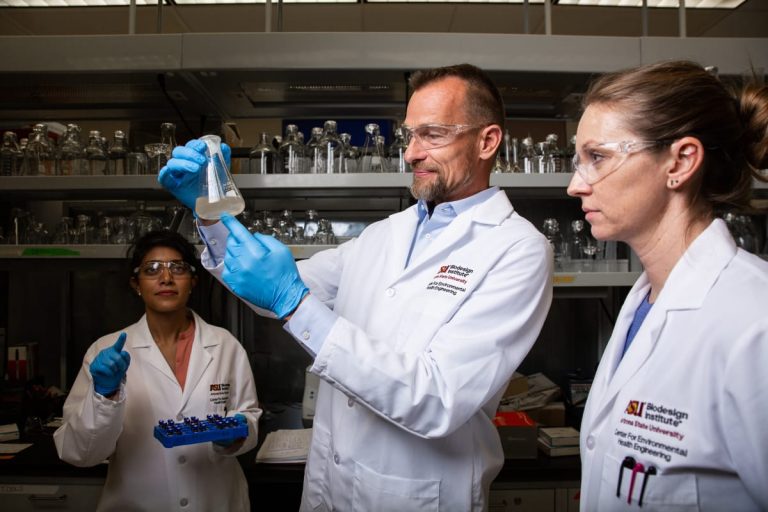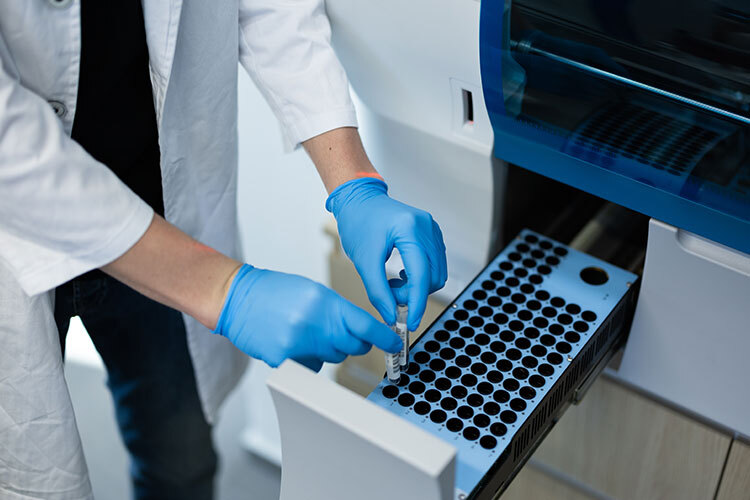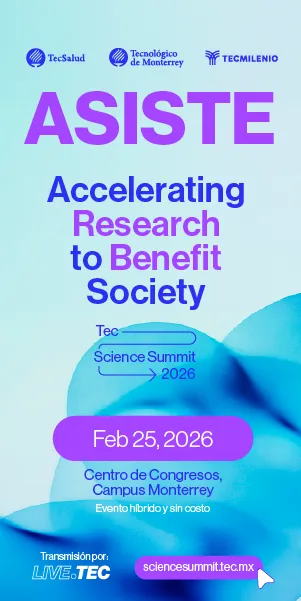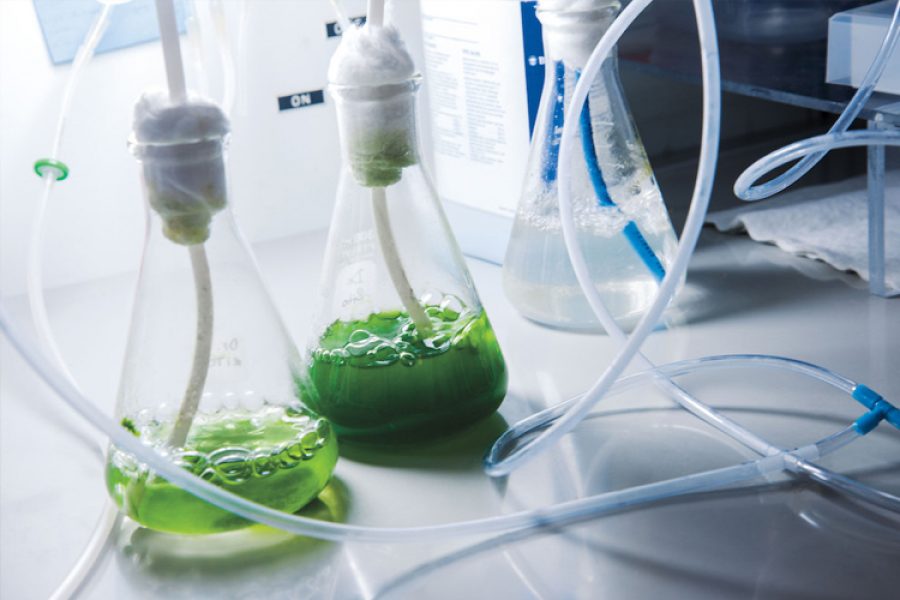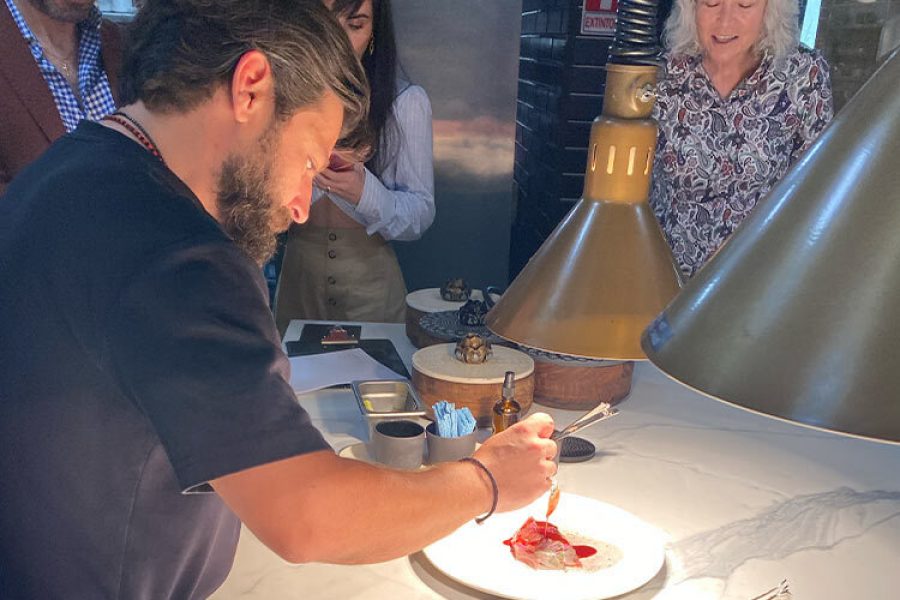Tec de Monterrey is celebrating as Sergio Serna, a professor and researcher with over 30 years of service to the institution, and Juan Armendáriz, a distinguished researcher in Diagnostic and Therapeutic Innovation in Chronic Degenerative Diseases at the School of Medicine and Health Sciences, have been announced as two of the five winners of the 2023 National Science Award. They received this recognition in the Technology, Innovation, and Design category.
This prestigious award, granted by the Mexican government, honors individuals whose academic or research contributions have significantly advanced the country’s science, technology, and innovation.
In an interview with TecScience, Serna expressed his pride in receiving this recognition, considering it a fitting closure as he approaches retirement in a few weeks. He shared, “My mom, at 94, has always supported me, and I’m sure she will be thrilled to hear the news. My dad also supported me, though he passed away 13 years ago. I believe he would be very proud of me. How I wish he could be here to witness this.”
Emphasizing the importance of hard work, Serna advised fellow researchers, “In this world, nothing comes for free. Always strive to go beyond, collaborate with the best, build strong human relationships, and aim to make a lasting impact with your research, which is much needed.”
Other awardees include Alfredo Heriberto Estrella and Rafael Vázquez Duhalt in the Physical-Mathematical and Natural Sciences category and Edilso Francisco Reguera Ruiz, an expert in computational chemistry.
National Science Award 2023: Sergio Serna
Serna currently serves as the Center for Protein Research and Development (Cidpro, in Spanish) director, part of the FEMSA Biotechnology Center at the Tec de Monterrey. His research focuses on processing cereals to create next-generation proteins.
Initiated a decade ago, the project aims to provide high-quality, affordable food, particularly for those with limited resources. Serna explained to TecScience in June that he is driven by the desire to address nutritional challenges, especially protein deficiency, in children. He aims to achieve this by producing plant-based proteins that can replace animal sources at a lower cost, minimizing environmental impact and preserving nutritional value.
One of his notable projects involves enhancing the nutritional content of tortillas through natural processes. Serna is working on selenium-enriched corn, which allows corn kernels to germinate with selenium salt. The germinated grains are then cooked with water and calcium hydroxide to create the dough used in tortilla production.
Selenium, a vital trace element, triggers the production of glutathione peroxidase in the human body, protecting it from degradation and counteracting oxidative stress. Serna designed the method to be simple, ensuring that any tortilla factory in the country, even those with rudimentary technology, can implement it.
Agriculture and Animal Sciences graduate from Tec de Monterrey, Campus Monterrey, Serna, holds a master’s degree in nutrition and a Ph.D. in Food Engineering from Texas A&M University. He has collaborated with various Mexican and international businesses and agencies, including the National Food Research Center in Rio de Janeiro, Brazil, the US Agency for International Development, Gamesa, GIMSA, Química SUMEX, Omega Tech, and other organizations related to food and nutrition. Serna has authored 13 books and over 200 articles and contributed to some of Tec de Monterrey’s most significant patents.
Juan Armendáriz, Distinguished Professor
Armendáriz is a distinguished professor at the Tecnológico de Monterrey in the School of Medicine and Health Sciences, Campus Guadalajara.
For over 35 years, his research has focused on studying hepatic cirrhosis. He is a global pioneer in gene therapy and has implemented various biotechnological developments for curing hepatic cirrhosis.
His scientific endeavors have resulted in over 200 articles in national and international research journals, over 470 presentations at scientific conferences, six books, and 33 chapters in books with ISBN registration.
Armendáriz holds more than 25 patents registered in the United States, Mexico, Canada, Japan, and various countries in Europe and Africa. These patents have been commercially available in Mexico for several years under trademarks such as Kitoscell, Kitoscell LP, and Kitoscell Q, among others. Kitoscell LP, in particular, has proven effective in clinical trials for reducing hepatic fibrosis in patients with chronic infection from Hepatitis C and B viruses, as well as those with chronic alcohol consumption.”



